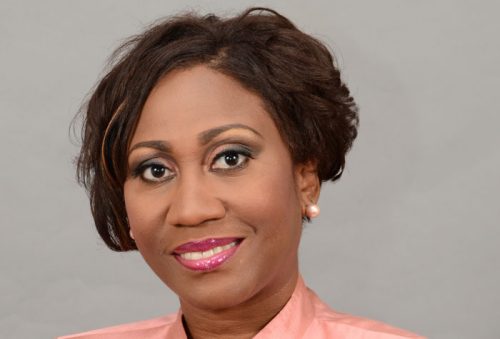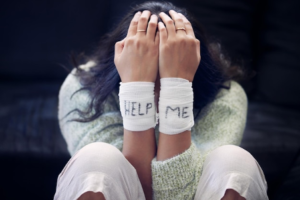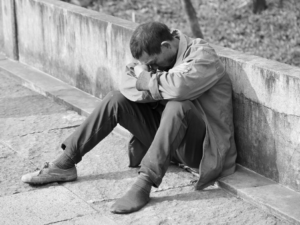With not many safe spaces available for leisure islandwide, children are increasingly turning to gadgets for company and play space. Experts are concerned, however, that these gadgets are further ripping Jamaican families apart and are placing our children at greater risk for predators.
FAMILY LIFE MATTERS
Increasing access to gadgets and the willingness of parents to purchase them to appease their children’s indulgence is of concern for respected family therapist Dr. Barry Davidson because it exposes children to adult content. In a fast-paced world where parents have to sometimes work long hours to make ends meet, children are literally being left to their own devices.
“They are not interacting enough with others and learning from others, and they are getting a lot of their information from the internet and not using that information in a correct way sometimes,” said Dr Davidson, the chief executive officer of Family Life Ministries.
He finds that in some instances, more effort is made by parents to give their children the latest smartphones and other gadgets more than their time.

“We are in a very consumer-driven society, and anything that the children see other kids with or they see advertised a lot on television, they want it, and sometimes their parents are going out of the way to get things and at the same time, not even providing the right food for the children,” the family life counsellor noted.
Dr Davidson, who has been counselling families since the late 1970’s said that compared to then, there are far too many distractions now for families. This is a contributing factor to broken homes.
“Some children are not getting a chance to be listened to as much as they used to be because nobody seems to be having the time,” he said.
WORRYING STATISTICS, ADVOCATE FOR CHILDREN
The Office of the Children’s Advocate (OCA), led by Diahann Gordon-Harrison, launched the “Be social, be smart” handbook for children in 2017 to provide guidance on how to navigate the internet safely. The team at the OCA conducted a survey among adolescents for the publication, and the findings were startling.
Of those students who were on social media, 64 percent admitted that they were contacted by a stranger online in a way that made them uncomfortable, while 63 percent of the boys and 53 percent of the girls had met face-to-face with someone they knew only from online. In addition to this, 20 percent of the students said they felt pressured to post content online that was sexually explicit, and only 40 percent activated the privacy settings on their phones.
At the time, 72 per cent of the 514 students from 23 high schools across the island who were polled had access to the internet at home. That figure would have likely increased with the emergence of COVID-19 in 2020, as parents were mandated to purchase tablets for their children to facilitate online classes. The government, through the Universal Service Fund (USF), accelerated its mission at the time to create a more digital society.
DATA REPORTAL
According to Simon Kemp, the chief analyst at DataReportal and chief executive officer of Kepios, there were 2.03 million internet users in Jamaica in January 2022. “There were 1.75 million social media users in Jamaica in January 2022,” Kemp noted.
Governor General Sir Patrick Allen quoted Kemp’s 2021 data on October 6 of that year while addressing the 12th annual staging of the Governor General’s Programme of Excellence Youth Consultative Conference, held at the Montego Bay Convention Centre in Rose Hall, St James.
“At the end of 2021, there were approximately three million mobile connections in Jamaica, so this means there are more connections or devices in Jamaica than people. There were 1.5 million social media users in Jamaica, the equivalent of half the total population as of January 2021, and the number of social media users in Jamaica increased by 200,000, or just about 15 percent, between 2020 and 2021,” he said.
Gordon-Harrison told Freedom Come Rain that her team is currently undertaking another survey to ascertain current internet trends among children.
The “revamped re-iteration” of the “Be Social, Be Smart” manual is being done in collaboration with UNICEF.
“We feel that this is something that is dynamic and it keeps changing,” said Gordon-Harrison.
HEAR THE CHILDREN CRY
Children’s advocate Betty-Anne Blaine and her team at Hear the Children Cry visited several schools prior to the COVID-19 pandemic, where they pleaded with parents during Parent Teachers’ Association meetings to spend more time with their children, among other things.
“As far as I am concerned as an advocate, the biggest problem Jamaica has is not crime, it’s family. We have a family life crisis in Jamaica, and when we fix family life, we will fix our country,” she told Freedom Come Rain.
She acknowledged, however, that some parents have to toil long hours, pointing to the case of security guards who sometimes have to work at night. She commended those workplaces that have established daycare centres where children can play and interact with other children while their parents work.
The children’s advocate believes that the government can partner more with churches to create additional safe spaces where children can play and interact.
“Gadgets cannot be a parent,” she argued, before adding, “You can’t view your responsibility as a parent to just giving your children gadgets to keep them occupied. Children need interaction with parents and with others.”
Gordon-Harrison acknowledges that parents are having to work extra hard to put food on the table, but she does not believe this takes away from the responsibility parents have to engage their children.
“Our approach is not to say tablets and social media are bad. It is about helping parents to navigate what some of their options are, given the reality of the long (working) hours, given the reality of sometimes being tired and you just need a break,” she said.






